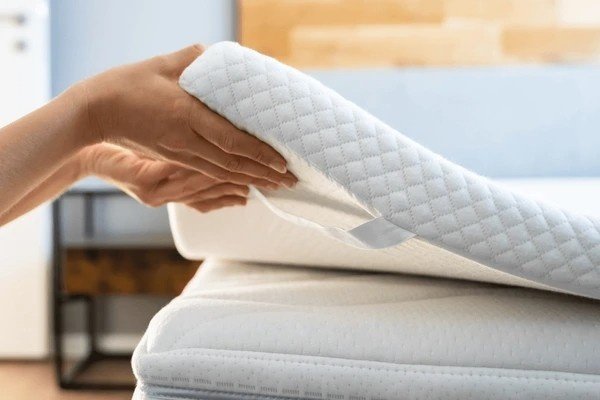Wearable smart health devices have become an essential part of modern life, helping people monitor their health and well-being more easily than ever before. Whether you’re looking to track your fitness progress, monitor chronic conditions, or just keep an eye on your overall health, there’s a wearable device for almost every need. However, with so many options available, choosing the right one can feel overwhelming. In this buying guide, I’ll walk you through some of the best wearable smart health devices on the market, helping you make an informed decision based on your specific needs and preferences.
Table of Contents
Why Wearable Health Devices Matter
Wearable health devices provide real-time data that can be invaluable in maintaining and improving your health. Unlike traditional health tracking methods, which often require visits to doctors or regular check-ups, wearables offer continuous monitoring. These devices are equipped with sensors that can track various aspects of your health, such as heart rate, steps taken, sleep patterns, and even blood oxygen levels.
The best wearable health devices go beyond just tracking; they offer personalized insights and recommendations that can help you make informed decisions about your lifestyle. Whether you’re trying to lose weight, improve your fitness, or manage a health condition, a wearable can be a helpful tool. In addition, many devices integrate with mobile apps, providing you with a more comprehensive view of your health over time.
Types of Wearable Smart Health Devices
When it comes to wearable health devices, there are several categories to consider. Each type offers unique features and benefits, so it’s essential to understand which one suits your needs the best.
1. Fitness Trackers
Fitness trackers are the most common wearable devices. They are designed to track basic metrics like steps, distance, calories burned, and heart rate. Some advanced fitness trackers can also monitor your sleep patterns and provide feedback on your physical activity throughout the day.
Popular Fitness Trackers:
- Fitbit Charge 5
- Garmin Vivosmart 4
- Xiaomi Mi Band 6
2. Smartwatches
Smartwatches are more advanced than fitness trackers, often combining fitness tracking with the ability to make calls, check messages, and interact with apps. They are ideal for those who want a multifunctional device that helps them manage their health and stay connected.
Popular Smartwatches:
- Apple Watch Series 8
- Samsung Galaxy Watch 5
- Garmin Venu 2 Plus
3. Health-Specific Devices
These devices are tailored for specific health needs, such as blood pressure monitoring, ECG tracking, or even glucose level monitoring. If you have specific health concerns, such as hypertension or diabetes, these devices can be particularly useful.
Popular Health-Specific Devices:
- Withings BPM Connect (Blood Pressure Monitor)
- KardiaMobile 6L (ECG Monitor)
- Dexcom G6 (Continuous Glucose Monitor)
4. Sleep Trackers
Sleep trackers monitor your sleep quality and patterns, providing insights into how well you’re resting each night. They can help identify issues such as sleep apnea or restlessness, making them an essential tool for improving your sleep hygiene.
Popular Sleep Trackers:
- Oura Ring
- Whoop Strap 4.0
- Fitbit Luxe
Key Features to Look for in Wearable Health Devices
When shopping for a wearable health device, there are several important features to consider. Understanding what each feature does and how it might benefit you will help you choose the best device for your needs.
1. Heart Rate Monitoring
Many wearable devices feature built-in heart rate monitors. These sensors track your heart rate throughout the day, providing real-time data on your heart health. For athletes or people with heart conditions, this is an essential feature. Some devices also monitor your heart rate variability, which can give insights into your stress levels and overall health.
2. Sleep Tracking
Good sleep is critical to overall health, and many wearables now include sleep tracking features. Sleep trackers monitor the various stages of sleep (light, deep, and REM) to help you understand your sleep patterns. Some advanced trackers also provide insights into factors that may affect your sleep quality, such as room temperature and breathing patterns.
3. Step and Activity Tracking
Tracking steps and physical activity is the core functionality of many fitness trackers. Devices with this feature count your steps, measure distance, and calculate calories burned. Advanced models can also track specific activities like running, cycling, or swimming, offering more detailed insights into your fitness routine.
4. GPS and Navigation
Some wearables, particularly smartwatches, come with built-in GPS. This feature is useful for outdoor activities like hiking, running, or cycling, allowing you to track your route and distance in real-time without needing to carry your phone.
5. Battery Life
Battery life is another important factor to consider when purchasing a wearable. The longer the battery lasts, the less frequently you’ll need to charge your device. Fitness trackers typically have longer battery lives compared to smartwatches, which tend to require more frequent charging due to their additional features.
6. Water Resistance
If you plan on using your device while swimming or in rainy weather, water resistance is a must. Look for devices that are rated for water resistance, such as those with an IP68 or higher rating, which indicates the device can withstand water exposure.
7. Compatibility with Apps
Most wearable health devices sync with mobile apps, allowing you to view detailed reports and trends over time. Make sure the device you choose is compatible with the apps that suit your needs, whether it’s the Fitbit app, Apple Health, or another third-party app.
Comparison of Popular Wearable Health Devices
Below is a comparison table that highlights some of the key features of the best wearable health devices in different categories.
| Device | Type | Key Features | Battery Life | Water Resistance | Price (Approx) |
|---|---|---|---|---|---|
| Fitbit Charge 5 | Fitness Tracker | Heart rate monitor, GPS, sleep tracking, ECG | 7 days | 5 ATM (50m) | $179.95 |
| Garmin Vivosmart 4 | Fitness Tracker | Pulse Ox sensor, sleep tracking, stress tracking | 7 days | 5 ATM (50m) | $129.99 |
| Apple Watch Series 8 | Smartwatch | ECG, blood oxygen, heart rate, sleep tracking | 18 hours | 50 meters | $399 |
| Samsung Galaxy Watch 5 | Smartwatch | ECG, heart rate, sleep monitoring, GPS | 40 hours | 5 ATM (50m) | $279.99 |
| KardiaMobile 6L | Health Device | 6-lead ECG monitor | N/A | N/A | $149.99 |
| Withings BPM Connect | Health Device | Blood pressure monitoring | 6 months (battery) | N/A | $129.95 |
| Oura Ring | Sleep Tracker | Sleep tracking, heart rate, body temperature | 7 days | 5 ATM (50m) | $299 |
How to Choose the Right Wearable Device for You
Now that you have a better idea of the different types of wearable health devices and their features, it’s time to choose the right one. Here’s a quick guide to help you make your decision:
1. Define Your Needs
The first step in choosing the right device is to define your health goals. Are you looking to track your fitness progress, monitor a chronic condition, or improve your sleep? Understanding your needs will help you narrow down your options.
2. Consider the Type of Device
Do you need a simple fitness tracker, or would you prefer a smartwatch with more features? If you need specific health monitoring, such as blood pressure or ECG, look for devices that specialize in those areas.
3. Look at Battery Life and Durability
If you’re constantly on the go or want a device that can last through your workouts, battery life and durability are essential factors to consider. Devices like the Garmin Vivosmart 4 and Fitbit Charge 5 offer long battery life, while smartwatches like the Apple Watch and Samsung Galaxy Watch have shorter battery lives but come with additional features.
4. Check Compatibility with Your Phone
Some wearable devices are optimized for use with specific smartphones or platforms. For example, the Apple Watch works best with iPhones, while the Garmin and Fitbit devices can be used with both iOS and Android devices. Make sure the wearable you choose is compatible with your phone’s operating system.
5. Set a Budget
Wearable devices come in a wide range of prices, from budget-friendly trackers to premium smartwatches. Decide how much you’re willing to spend and choose a device that fits within your budget while offering the features you need.
Final Thoughts
Wearable smart health devices are a great way to stay on top of your health and fitness goals. Whether you need a simple fitness tracker, a comprehensive smartwatch, or a specialized health monitor, there is a device to meet your needs. By considering factors like functionality, battery life, and compatibility with your smartphone, you can make an informed decision that fits your lifestyle and health objectives.
If you’re still unsure about which device to choose, don’t hesitate to visit a local store to try out the devices in person. Many brands offer a hands-on experience where you can get a feel for the device and see if it’s right for you.





